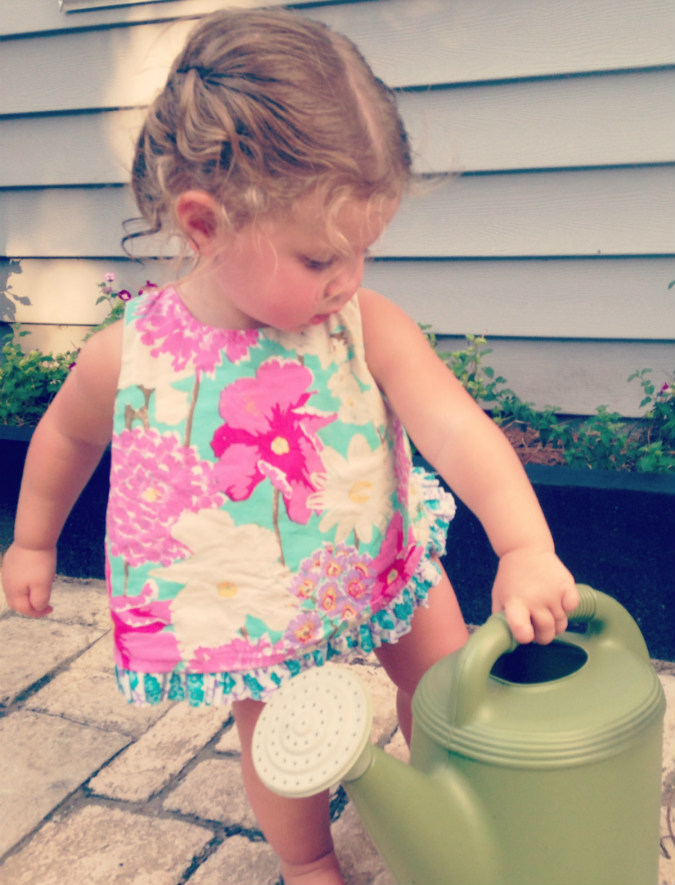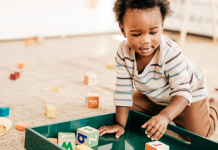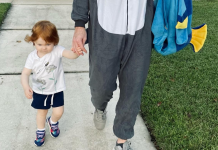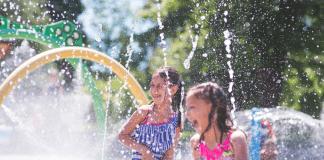Our almost-two-year old daughter, Avery, was a pretty amazing baby. She slept through the night very early on, took right away to breastfeeding, drinking from a bottle and trying new foods. She smiled and cooed for anyone and we were able to take her everywhere. She was a joy to have around and made the new mommy transition pretty painless.
Things are changing!! Avery is growing into her own little person, with her own way of doing things and demonstrating her independence. Sometimes this leaves myself, my husband and Avery frustrated and exhausted. I know this is all normal behavior, and most of the time she is so much fun and an absolute sweetheart, but I was not prepared for this stage of parenting!
Recently, we were at the James Island County Park Splash Pad and Avery threw a mini-tantrum about changing out of her bathing suit. The plan was to head over to the playground after the Splash Pad, but she was grabbing anything and everything in reach, giggling as I told her to stop. I was becoming very flustered and I made the decision we were not going to the playground and instead would head home. I explained this to her very calmly and clearly as we packed up. This situation made me stop and think. Was this the appropriate discipline for an almost two year old? I was sad she wasn’t able to the playground, but it felt like the natural consequence.
So, I started researching and reading about what works with toddle discipline. Here are some tips and reminders to help survive this stage of parenting:
Try to be sympathetic
Toddlers act out when they are hungry and/or tired. Sticking to a regular nap time schedule is important in the toddler years. And always have healthy snacks on hand. The squeezable fruit snacks and cheerios are our current favorites.
Consequences
Sometimes toddlers will have to lose a privilege if they are misbehaving. Toddlers do not like being separated from their parents or toys. If nothing else has worked, a time-out might help.
Try giving one minute per age of your child. If your child doesn’t listen, take her to the quiet and safe spot you’ve designated for time-outs, and set a timer. When it goes off, ask her to apologize and give her a big hug to show you are not angry.
Time-out should not feel negative. As a teacher, I used to use a Rest and Return Chair. It was a set amount of time for students to rest, take deep breaths and gain control of their bodies before returning to group activities.
Offer choices
This allows your toddler to feel powerful within your boundaries. Offer two reasonable choices. For example, “Would you like to play with your blocks or color a picture?”
Give them responsibilities
Avery loves to help around the house. She helps feed our dog, throws trash away and takes laundry out of the dryer. Chores help children feel like you trust them and build their confidence.
Pick your battles
The word “No” loses its meaning when toddlers are constantly hearing “No, no, no.” Pick what is important to you and save “No” for scenarios that might put your toddler in danger.
Praise
Toddlers love to be told what a great job they are doing. Be excited and animated when you praise. For example, “Wow, great job cleaning up your toys! I love how you put all of the books in the basket. I need to give you a high five!”
Patience
Getting upset or angry at your toddler will only escalate the situation. Take deep breaths, walk away for a moment, respond with a calm even voice. And enjoy a glass of wine after bedtime. 🙂
Perspective
Every book/blog/article I read about parenting reminds us that this is just a phase. We can make it through!
Read
As a former teacher, I was always reading books and articles to help me with behavior management and teaching strategies. Dealing with my toddler is no different, I plan to continue reading and learning how to set appropriate limits and boundaries to help myself and my daughter as she enters each stage of childhood.
Recommended reads:
- The Happiest Toddler on the Block by Harvey Karp
- The Whole-Brain Child by Daniel J. Siegel and Tine Payne Bryson
- How Toddlers Thrive by Tovah P. Kline
What has helped you survive the terrible twos?














